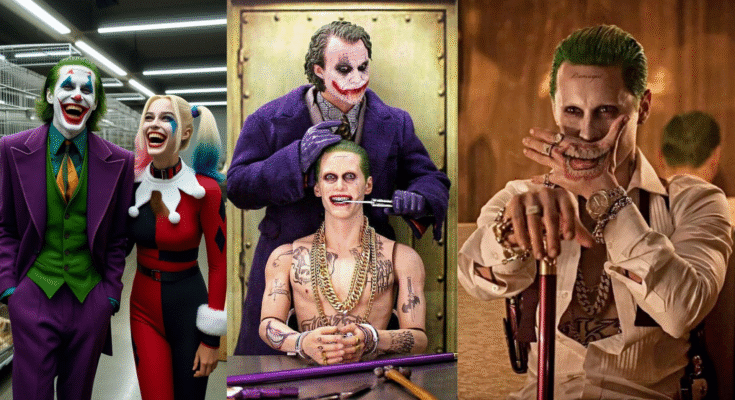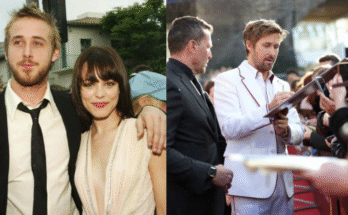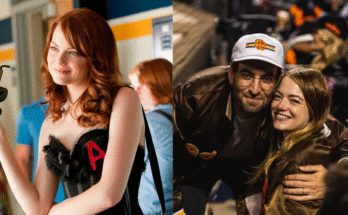The Master of Transformation and Unconventional Brilliance
Joaquin Rafael Phoenix (born October 28, 1974) is an American actor widely described as one of the preeminent actors of his generation and known for his roles as dark, unconventional and eccentric characters in independent cinema, he has received various accolades, including an Academy Award, a BAFTA Award, a Screen Actors Guild Award, a Grammy Award, and two Golden Globes.
In 2020, The New York Times named him one of the greatest actors of the 21st century—not for mainstream appeal or box office dominance, but for something rarer and more valuable: the absolute commitment to his craft, the fearlessness in taking on psychologically complex characters, and the refusal to compromise artistic integrity for commercial success.
Joaquin Phoenix is not a movie star in the traditional sense. He is an artist—a transformative force in cinema who has consistently chosen unconventional projects over mainstream blockbusters, who has lived inside disturbing psychological spaces to portray them authentically, and who has used his extraordinary talent to explore the darker, more complex aspects of the human condition.
Birth, Family, and the Theatrical Foundation
Phoenix was born at the Hospital Metropolitano San Francisco in the Río Piedras district of San Juan, Puerto Rico, to John Lee Bottom, the founder of a landscape gardening company, and Arlyn “Heart” Bottom (née Dunetz), an executive secretary at NBC and whose connection to an agent provided her children with acting work. Joaquin is the third of five children, following River (1970–1993) and Rain (born 1972), and preceding Liberty (born 1976) and Summer (born 1978).
The Bottom family was unconventional—spiritually inclined, artistic, and deeply committed to social causes. The family moved frequently, performing street music as children to support the family financially. This wasn’t the typical show business family seeking stardom; it was a family of artists and activists who viewed performance as one expression of a larger commitment to social change.
His given name was Joaquin Rafael Phoenix, but during his early childhood, he adopted the name “Leaf Phoenix”—a self-given name that reflected the family’s alternative lifestyle. This name change—from Phoenix to Leaf—reveals something essential about the boy: he was creating his own identity even as a child, rejecting the expectations and conventions around him in favor of something more authentic to his vision of himself.
The Phoenix children began their careers in television in the early 1980s. Eldest sibling River landed a regular role on “Seven Brides for Seven Brothers” (CBS, 1982-83), and Joaquin, who had changed his name to Leaf, scored a guest spot by association. He joined his big brother again in “Backwards: The Riddle of Dyslexia” (1984), with the pair being honored with Young Actor Awards.
River Phoenix was the star—talented, beautiful, charismatic, and destined for major stardom. Joaquin was the younger brother, standing in River’s shadow. This dynamic would shape everything that followed.
The Child Actor Years: Finding His Voice
Joaquin Phoenix is an American actor who started his career performing as a child on television. He appeared on the shows Seven Brides for Seven Brothers (1982) and Backwards: The Riddle of Dyslexia (1984) with his brother River Phoenix and on an episode of Murder, She Wrote (1984) with his sister Summer Phoenix. He made his feature film debut in SpaceCamp (1986) and had his first starring role in Russkies (1987). His first major film release was Ron Howard’s dramedy Parenthood (1989) with Steve Martin.
In Parenthood, Phoenix was a standout playing the troubled preteen son of Dianne Wiest. The film was a major success, and Phoenix was noticed. He could have ridden this success into a lucrative child star career—Disney films, television series, commercial endorsements. The path was clear.
Instead, at just fifteen years old, he made a decision that would define his entire career: he walked away from Hollywood.
The Wilderness Years: Choosing Authenticity Over Success
After this success, Phoenix, who was only 15 years old, decided to put his career on hold to travel on his own through Latin America. While he avoided Hollywood, his brother, River, stood in the spotlight, becoming one of Hollywood’s leading young actors. Around this time, Phoenix returned to using his birth name Joaquin instead of Leaf.

This wasn’t a career decision made by a business manager or agent. This was a teenager saying: “I don’t want this. I want to live. I want to experience the world. I want to find out who I am away from the lights and cameras.”
He traveled through South America. He learned Spanish. He lived as a normal teenager—or as normal as a former child star could manage. He was making a conscious choice: he would not be a show business animal. He would be an artist, and only on his own terms.
River, meanwhile, continued to ascend. By the late 1980s, River Phoenix was one of Hollywood’s most promising young actors—starred in Stand By Me, My Own Private Idaho, and was heading toward major stardom. Joaquin watched from the sidelines.
Then, on October 31, 1993, River Phoenix died.
Tragedy and Resurrection: The Death of River Phoenix
In 1993, Joaquin was with his famous brother, partying at the Viper Room nightclub in West Hollywood, when River collapsed outside and began having convulsions. Joaquin phoned for help, and paramedics arrived to resuscitate River.
River Phoenix died from a drug overdose. Joaquin was 19 years old. His brother—the star, the standard-bearer, the one who had stood in the spotlight while Joaquin retreated into privacy—was gone.
After River’s death, I felt like I was in an altered state. It took me over a year to get my life back. I don’t have the slightest desire to speak about my dead brother. It gets on my nerves to always be compared with him. My brother was a magnificent person and an outstanding actor.
The death of River Phoenix could have destroyed Joaquin. It could have driven him further away from acting, away from Hollywood, away from the industry that had claimed his brother. But something shifted. Joaquin recognized that he still had an artistic voice to express, a vision to fulfill.
In 1995, he returned to acting.
The Return: To Die For and Artistic Independence
His comeback film was Gus Van Sant’s To Die For (1995), a dark comedy about an ambitious television weather reporter (Nicole Kidman) willing to manipulate anyone to achieve fame. Following River’s accidental death from a drug overdose in 1993, Joaquin returned to the screen with the critically acclaimed To Die For (1995), which starred Nicole Kidman and was directed by Gus Van Sant.
The role itself was small—the boy who becomes the weather reporter’s lover—but the performance was revelatory. Phoenix brought an unsettling vulnerability to the character, a sense of quiet complicity and moral confusion. He wasn’t playing a “good guy” or a “bad guy”—he was playing a human being caught in a situation beyond his control and understanding. The nuance was extraordinary.
To Die For established something crucial: Joaquin Phoenix would not follow the same path as his brother. He would not become a mainstream leading man chasing blockbuster success. He would be an artist who made difficult, unconventional choices.
The Breakthrough: Commodus and the Art of Evil
The role that changed everything came in 2000: The film that confirmed Phoenix as a star was the historical epic Gladiator (2000). The Roman epic cast him as the selfish, paranoid young emperor Commodus opposite Russell Crowe’s swarthy hero. Determined to make his character as real as possible, Phoenix gained weight and cultivated a pasty complexion during the shoot. He received international attention and an Academy Award nomination for Best Supporting Actor for that role.
Commodus is one of cinema’s great villains. He’s not a cartoon—he’s a psychologically damaged young man who has inherited power he doesn’t deserve, jealous of his father, desperate for love, fundamentally broken. Phoenix’s performance captured all of this with devastating complexity. He made Commodus terrifying and pathetic, dangerous and desperate, simultaneously.

The genius of the performance is that Phoenix never played Commodus as evil. He played him as human—a human being whose trauma, insecurity, and psychology have driven him to monstrous behavior. The audience understands why Commodus is the way he is without ever excusing his actions.
For his role as the villain Commodus in the former, Phoenix earned a nomination for the Academy Award for Best Supporting Actor.
The Oscar nomination elevated Phoenix to star status. He was now in demand. Producers wanted to work with him. He could have pursued conventional stardom.
Instead, in the same year he delivered Commodus, he took a small role as a priest in an obscure indie film called Quills (2000).
The Artistic Philosophy: Choosing Quality Over Fame
The pattern emerged clearly: Phoenix would not be confined by market forces or commercial considerations. “I never lost the urge. I had a lot of opportunities, but I never liked them. They were all so cliched. I just wasn’t interested in ‘she’s my stepmother, and I pour ketchup on them,’ that kind of ridiculous movie.”
This quote is revealing. Phoenix saw through the system. He understood that most of what Hollywood offered was cliché, superficial, and beneath his talents. He would rather do nothing than do something mediocre.
This philosophy governed every choice he made. When he accepted a role in a mainstream film like Signs (2002) with Mel Gibson, it wasn’t because he was chasing blockbuster success—it was because he found something interesting in the character. When he appeared in the science fiction romance Her (2013), it was because he recognized the artistic merit of the project and the director’s vision.
Walking the Line: The Johnny Cash Transformation
In 2005, Phoenix took on one of his most ambitious roles: Johnny Cash in Walk the Line. Phoenix portrayed musician Johnny Cash in the biopic Walk the Line (2005) opposite Reese Witherspoon. Phoenix played and sang all of Cash’s vocal tracks in the film and on the accompanying soundtrack. This earned him the Golden Globe Award for Best Actor – Motion Picture Musical or Comedy, Grammy Award for Best Compilation Soundtrack for Visual Media and garnered his first nomination for the Academy Award for Best Actor.
What made this performance extraordinary wasn’t just that Phoenix sang and acted—it was the depth of his research and his absolute commitment to inhabiting Cash’s contradictions. Cash was a man of faith and sin, addiction and redemption, wildness and vulnerability. Phoenix didn’t simplify these contradictions; he embodied them.
Roger Ebert wrote, “Knowing Johnny Cash’s albums more or less by heart, I closed my eyes to focus on the soundtrack and decided that, yes, that was the voice of Johnny Cash I was listening to. The closing credits make it clear it’s Joaquin Phoenix doing the singing, and I was gob-smacked”.
For most actors, a Grammy Award and an Oscar nomination for a single role would be a career pinnacle. Phoenix treated it as one more step in an unfinished artistic journey.
The Master and the Existential Crisis
Then came 2008, and Phoenix announced he was retiring from acting to pursue a career in hip-hop music.
What followed was one of the strangest episodes in Hollywood history. Phoenix made public appearances in frazzled, unkempt states – most notably on David Letterman – which aroused suspicions that he may have been pulling an Andy Kaufman, which proved to be the case after the release of the mockumentary “I’m Still Here” (2010).
What was he doing? Was he having a mental breakdown? Was he joking? Was it performance art? The world was confused.

In retrospect, I’m Still Here appears to have been Phoenix’s way of stepping back from the machine of celebrity, of questioning the nature of performance and identity, of asking: “What is real and what is constructed?” It was a bold, confusing, ultimately honest interrogation of what it means to be a public figure.
He feared the entire stunt had jeopardized his career, saying, “I can see how people felt like they’d been duped.”
But it hadn’t destroyed his career. It had transformed it.
Redemption Through Art: The Master
In 2012, Phoenix returned with Paul Thomas Anderson’s The Master. Phoenix’s performance as a tormented World War II veteran with alcoholism who is enthralled by a character, played by Philip Seymour Hoffman, loosely based on Scientology founder L. Ron Hubbard was highly praised and won him an award for best actor at the Venice International Film Festival; he also received an Oscar nomination.
The Master is a masterpiece. Phoenix’s performance as Freddie Quell—a traumatized, alcoholic, sexually confused veteran trying to find meaning in a cult—is one of the greatest performances of the 21st century. Every moment carries weight. Every gesture communicates psychological truth. The performance is uncomfortable to watch—it’s supposed to be. It reveals a man profoundly broken, searching desperately for transcendence and finding only manipulation.
This is Phoenix at his finest: inhabiting psychological damage with such authenticity and depth that audiences are forced to confront their discomfort.
The Independent Years: Artistic Commitment
Throughout the 2010s, Phoenix continued to make extraordinary choices:
Her (2013): Phoenix starred as a man who develops a relationship with Samantha, an intelligent computer operating system in the Spike Jonze-directed romantic science fiction film Her (2013) and starred as a private investigator when he reteamed with Anderson in the film adaptation of Thomas Pynchon’s novel Inherent Vice (2014). Both roles earned him nominations for the Golden Globe Award for Best Actor – Motion Picture Musical or Comedy.
In Her, Phoenix played a lonely man falling in love with an artificial intelligence. The performance conveyed such vulnerability and authenticity that the relationship felt real—not despite being between a human and a computer, but because of the emotional truth Phoenix brought to it.
You Were Never Really Here (2017): In 2017, his performance as the damaged savior of sex-trafficking victims in You Were Never Really Here netted him the Cannes Film Festival Award for Best Actor.
Playing Joe, a traumatized former soldier working to rescue trafficking victims, Phoenix brought such intensity to the role that the film becomes almost unbearably powerful. He is a man barely holding together, operating from pure purpose and rage, haunted by his past.
The Joker: The Oscar-Winning Descent into Madness
Then came 2019 and Todd Phillips’ Joker.
For his performance as the titular character of Joker (2019), Phoenix won the Academy Award for Best Actor.
The role of Arthur Fleck is one of the most disturbing and transformative in modern cinema. Arthur is a man living on the margins of society, mentally ill, isolated, abused. As the film progresses, he descends into violence and madness, ultimately becoming the Joker.

Phoenix’s commitment to the role was extraordinary. He lost 52 pounds to physically embody Arthur’s gaunt, malnourished appearance. He lived inside the character’s psychological space during filming. His laugh—the performance’s central element—is utterly disturbing because it comes from a place of genuine psychological anguish. There’s no performance in the laugh; there’s only pain.
The film is violent and uncomfortable and deeply political—a meditation on what happens to society’s invisible people when no one sees them, cares for them, or acknowledges their humanity. The performance is not likeable; it’s not meant to be. It’s meant to force audiences to confront their own complicity in a system that creates Arthurs.
The Academy Award Phoenix won for this role was recognition not just of the performance, but of his commitment to the unglamorous, uncomfortable, deeply honest work of exploring human suffering.
At the awards ceremony, rather than deliver a conventional acceptance speech, Phoenix used the platform to speak about animal rights, climate change, and systemic injustice. He refused to perform gratitude in the way expected. Even in his moment of recognition, he remained true to his commitment to authenticity and social consciousness.
The Activist: Beyond the Screen
Phoenix’s activism is not separate from his acting; it’s inseparable from it. Outside acting, Phoenix is an animal rights activist. A vegan, he regularly supports charitable causes and has produced several documentaries on global meat consumption and its impact on the environment.
He is a strict vegan. He refuses to wear any costumes made out of animal skin. For the movie Gladiator (2000), Quills (2000) and Walk the Line (2005), among others, he requested that his “leather” costumes be made from synthetic materials.
These are not performative gestures. These are values he lives by, even when they complicate his work as an actor. For an actor playing a historical figure, requesting that leather costumes be made from synthetic materials creates practical and artistic challenges. Phoenix accepts these challenges because the commitment to his values matters more than convenience.
Recent Work: The Continuation of Brilliance
He reprised his role in the 2024 sequel. He has since starred in the independent films C’mon C’mon (2021), Beau Is Afraid (2023) and Eddington (2025), and portrayed the title role in the historical drama Napoleon (2023).
In C’mon C’mon, Phoenix plays a radio journalist traveling across America with his young nephew. The film is quiet, meditative, focused on connection and communication. It’s a departure from the psychologically tortured characters that dominate his résumé—proof that his range extends beyond darkness into tenderness.
In Ari Aster’s Beau Is Afraid (2023), Phoenix inhabits an anxious loner navigating his chaotic past and present. The film is surreal and nightmarish, and Phoenix brings his characteristic intensity to a character adrift in psychological chaos.
In Ridley Scott’s Napoleon (2023), Phoenix took on the title role of the French military commander. “[Napoleon] was a man of huge contradictions—fascinating, jealous, bad-tempered—but his men loved him,” Phoenix said at the movie’s London premiere. “They loved him—he fought beside them.”
Even at fifty years old, Phoenix continues to be drawn to characters of contradiction and complexity. He continues to choose roles that demand transformation and psychological depth over commercial considerations.
The Philosophy of Joaquin Phoenix
Phoenix has articulated his artistic philosophy in ways that reveal his commitment to growth over success:
“The reason I keep making movies is I hate the last thing I did. I’m trying to rectify my wrongs.”

This statement is revealing. He doesn’t make movies to build on success; he makes movies to move beyond perceived failures. Each role is an attempt to explore something he hasn’t fully captured, to push into new psychological territory.
“I don’t know why I always get to play these guys who have few redeeming features. But don’t knock it. Villains are much more fun.”
He understands that the most interesting characters are often the least admirable. Villains, broken people, psychologically damaged individuals—these are characters who reveal truths about human nature that heroes cannot. Playing evil or damaged characters isn’t about glorifying darkness; it’s about understanding it.
The Legacy: Redefining Excellence
Joaquin Phoenix has fundamentally altered what it means to be an excellent actor in the 21st century. He has demonstrated that:
Artistic integrity matters more than commercial success. He has consistently chosen difficult, unconventional roles over blockbuster franchises. His box office is respectable but not enormous—what matters is the quality of his work.
Transformation is central to acting. Phoenix doesn’t play versions of himself; he becomes other people. He changes his body, voice, psychology, and physicality to embody characters authentically.
Discomfort is valuable. His best performances make audiences uncomfortable. He’s not interested in being likeable; he’s interested in being truthful.
The personal is political. His activism around animal rights and environmental issues isn’t separate from his acting—it’s an expression of the same commitment to authenticity and moral consistency.
Failure is part of growth. The I’m Still Here experiment could have destroyed his career. Instead, it revealed something about his commitment to questioning and challenging himself.
Conclusion: The Artist in Our Time
Joaquin Phoenix stands as one of cinema’s greatest artists—not in the sense of being a movie star or a commercial success, though he is both those things, but in the deeper sense of being an uncompromising artist committed to exploring the human condition with depth, authenticity, and courage.
In a industry built on compromise, manufactured personas, and market-driven decision-making, Phoenix has built a career on the opposite: artistic integrity, psychological depth, and the willingness to explore darkness and damage in service of truth.
He is fifty years old and continues to work at the highest level of his craft. He continues to challenge himself. He continues to choose roles that demand transformation. He continues to use his platform for causes he believes in.
In 2020, The New York Times named him one of the greatest actors of the 21st century. This recognition wasn’t for playing heroes or for achieving box office success. It was recognition of his commitment to the craft of acting, to artistic integrity, and to the difficult work of exploring what it means to be human.
Joaquin Phoenix reminds us that excellence in cinema isn’t about stardom or commercial success. It’s about commitment to craft, authenticity in performance, and the courage to explore the most difficult and uncomfortable aspects of the human experience.
“I don’t know why I always get to play these guys who have few redeeming features. But don’t knock it. Villains are much more fun.” – Joaquin Phoenix
The greatest actors aren’t those who entertain us with likeable characters. They’re those who show us truths about ourselves we’d rather not see—and Joaquin Phoenix is perhaps the greatest truth-teller of our time.



